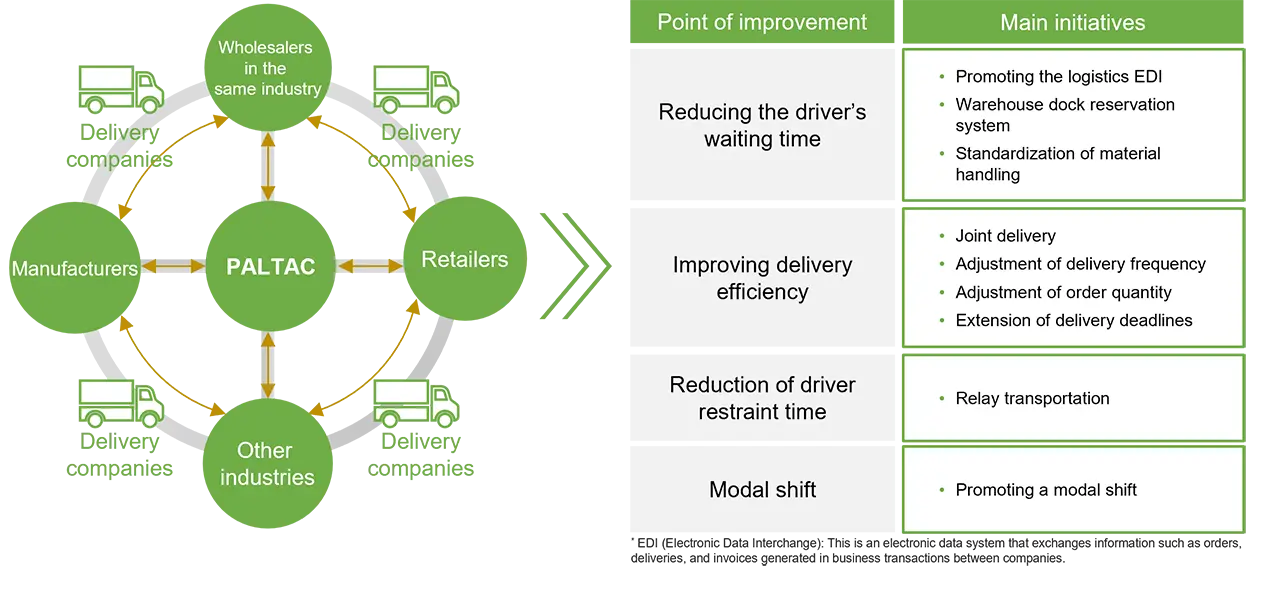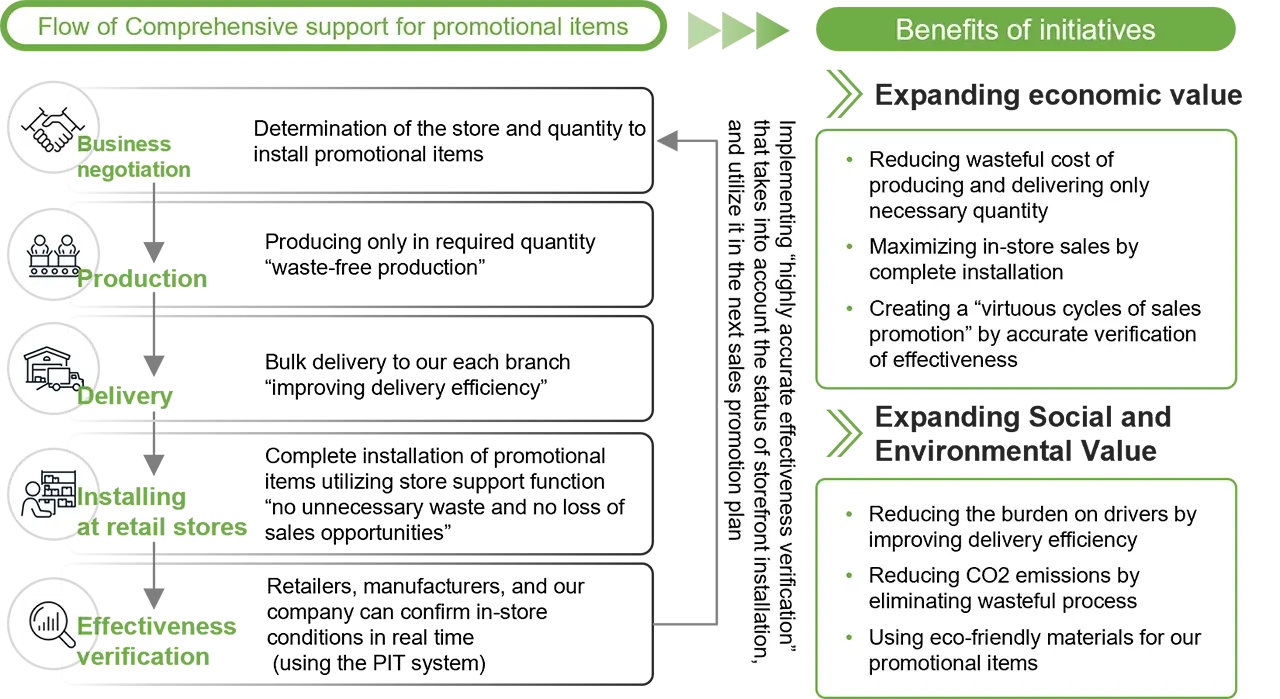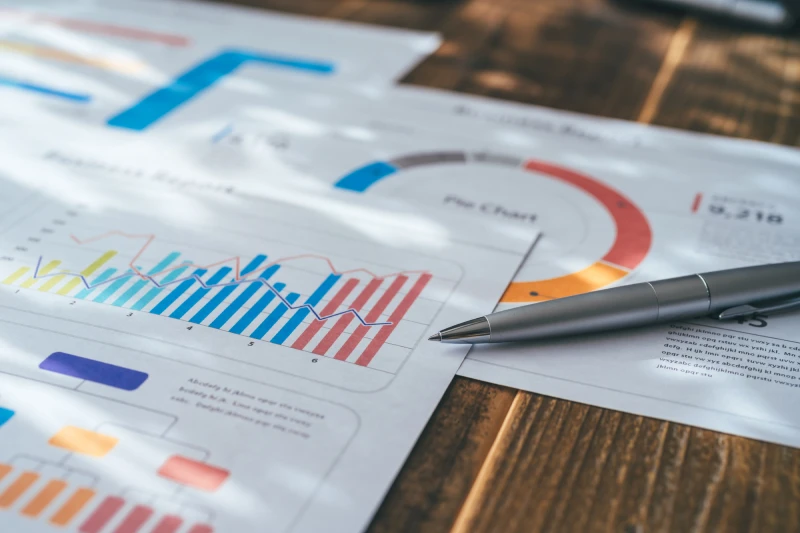Addressing Climate Change
We consider addressing climate change as one of the most important social issues and are working to reduce the environmental impact of society as a whole through our business activities in order to realize a decarbonized society. We will continue to reduce CO2 emissions by improving loading efficiency and optimizing delivery routes in truck transportation of products, thoroughly implementing energy-saving measures in energy use at distribution centers, and procuring renewable energy-derived electricity.
As part of our efforts, we endorsed the TCFD in June 2022 and disclosed information on climate change based on TCFD recommendations. Going forward, we will actively promote dialogue with stakeholders based on the disclosed information, consider and implement countermeasures, and further enhance disclosure.
CO2 Emissions (by Scope)
| Year ending Mar 31, 2023 | Year ending Mar 31, 2024 | Year ending Mar 31, 2025 | |||
|---|---|---|---|---|---|
| Scope 1 (direct emissions from in-house fuel use) | 3,262 | 2,627 | 2,589 | ||
| Scope 2 (Indirect emissions from in-house electricity use) | 20,234 | 18,756 | 17,746 | ||
| Scope 3 (Supply chain emissions) *1 | 6,189,933 | 6,399,566 | 6,617,924 | ||
| Category 1 | Products and services purchased | 5,523,521 | 5,715,331 | 5,942,301 | |
| Category 2 | Capital goods | 36,855 | 5,638 | 6,543 | |
| Category 3 | Not included in Scope 1.2 Fuel and energy related activities |
7,332 | 3,993 | 4,133 | |
| Category 4 | Transportation, delivery (upstream) *2 | 30,578 | 28,855 | 29,500 | |
| Category 5 | Waste from business activities | 460 | 677 | 723 | |
| Category 6 | business trip | 284 | 290 | 296 | |
| Category 7 | Employer Commuting | 9,571 | 9,554 | 9,534 | |
| Category 12 | Disposal of products sold | 581,197 | 635,096 | 624,762 | |
| Category 13 | Leased assets (downstream) | 135 | 132 | 132 | |
- The calculations are based on the emissions intensity database (Ver. 3.5) published by the Ministry of the Environment.
- Category 4 is the emissions associated with the transportation of products from our company to retailers.
Efforts to Reduce Scope 1 and 2
PALTAC is promoting reduction efforts targeting Scope 1 and 2 CO2 emissions, with the goals of a 50% reduction by 2030 (compared to FY2020) and carbon neutrality by 2050.
For Scope 1, in addition to switching to fossil fuels used at our business sites, we will reduce the amount of gasoline used in our sales vehicles and promote the switch to EV vehicles while comprehensively taking into account the status of environmental improvements such as recharging infrastructure and a review of business processes.
With regard to Scope 2, since there is a limit to the reduction of electricity consumption, we will promote the procurement of renewable energy-derived electricity through the installation of solar power generation facilities at our distribution centers and the acquisition of environmental certificates. In addition to the ongoing measures to achieve carbon neutrality, we will continue to consider all possible means, such as procurement of renewable energy power with additional potential using PPA, and promote effective initiatives in response to technological evolution and changes in the market environment.
Efforts to Reduce Scope 3
With regard to Scope 3, we are promoting reductions in Category 4, which is highly related to CO2 reductions through improvements in business activities, as well as expanding the scope of our Scope 3 calculations. In Category 4, we are promoting measures to reduce fuel consumption by improving delivery efficiency, such as shortening transportation distances and improving loading efficiency. From a medium- to long-term perspective, we will strengthen cooperation with delivery companies and other business partners to switch to non-fossil energy sources for delivery trucks, while paying attention to technological evolution and changes in the market environment.
For other categories, we are first calculating emissions using the Ministry of the Environment's guidelines. In the future, we will improve the accuracy of calculations and identify reduction targets, as well as investigate and research methods to have the same "yardstick" as our suppliers, which is indispensable for reductions, and link this to further collaboration and reductions.
Reduction of CO2 emissions from product transportation
To reduce CO2 emissions from product transportation, we are working to reduce fuel consumption by shortening transportation distances, improving loading efficiency, and otherwise enhancing delivery efficiency. Based on the newly formulated Medium-term Management Plan, we plan to visualize delivery data through the establishment of a delivery management system and promote cooperative delivery with other companies to further reduce CO2 emissions by improving delivery efficiency.
From a medium- to long-term perspective, we will also focus on technological evolution and changes in the market environment, and strengthen cooperation with delivery companies and other business partners to switch to non-fossil energy sources for delivery trucks.

Comprehensive support for promotional items" linking sales promotion with data
Comprehensive support for promotional items" is a service in which we take charge of the planning, production, packaging, delivery, and installation of sales promotion items (sales floor fixtures for sales promotion), as well as the subsequent measurement of their effectiveness, through collaboration between our store support and SCM functions and the sales floor promotion functions of our subsidiary Haba Creation Co. The industry is not only about products, but also about the quality of the products themselves. In this industry, there is a lot of waste not only in products but also in the distribution of sales promotion materials, causing loss of sales opportunities and environmental impact. Comprehensive support for promotional items" eliminates waste in the distribution of promotional items by working with retailers and manufacturers from the production stage of promotional items, manufacturing in quantities appropriate to the promotional plan, efficient delivery, and complete installation and highly accurate effectiveness verification of promotional items using the In-store information sharing platform (PIT system), which enables real-time confirmation of in-store conditions. This eliminates waste in the distribution of sales promotion materials. The effects of these efforts have already been seen with several of our business partners, and we have realized sales promotion activities that contribute to sales growth and improve social and environmental values.




